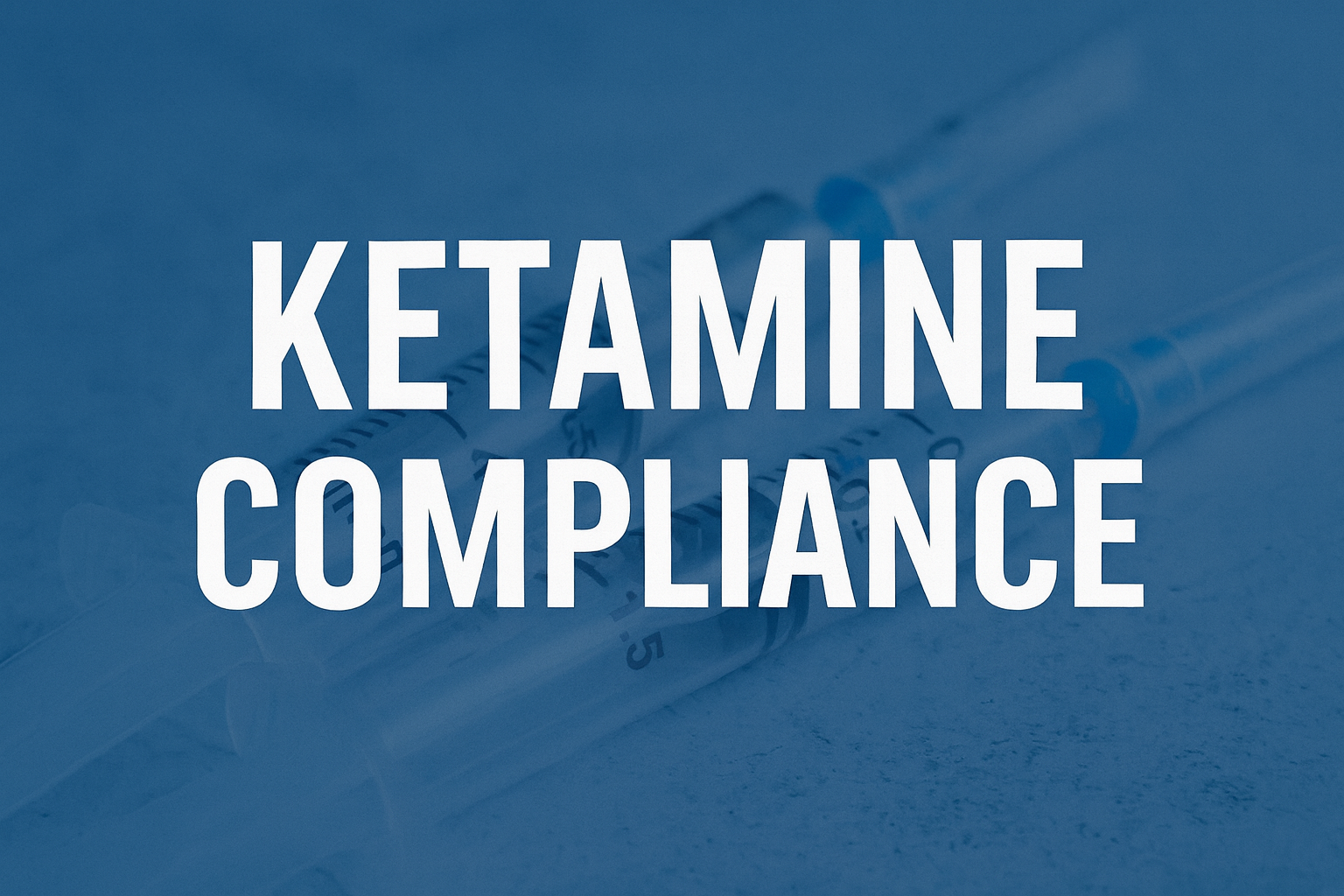
As we have written about previously, HERE, the DEA’s focus has broadened in recent years from classic “diversion” cases involving misuse of opioids and other controlled substances, to “record-keeping” investigations targeting certain categories of registrants. Accordingly, for the reasons discussed at further length below, healthcare businesses that prescribe or dispense ketamine are increasingly the targets of DEA scrutiny. Consequences can be severe for providers that fail to heed these warnings.
Classic “Diversion” of Controlled Substances is Far Less Rampant
Gone are the days involving widescale diversion of Schedule II opioids and other narcotics from Internet storefronts or lines of patients around the block outside pain management clinics. Although so-called “pill mills” still operate, the nationwide opioid epidemic and resulting crackdown has significantly reduced the misuse and abuse of controlled substances.
DEA is Still Reeling from Scathing Criticism & Blame for the Opioid Epidemic
Although the diversion of controlled substances has decreased in recent years, the DEA is still smarting from front-page headlines that accused the Agency of inaction in the face of the opioid epidemic. While much of this criticism was misplaced, the pendulum has swung, meaning that DEA is now far more aggressive and driven to police registrants more closely. The end result is that registrants need to ensure compliance with DEA requirements at all levels, including detailed record-keeping requirements, which are often unclear.
Medicinal Use of Ketamine is Unfamiliar to the DEA
The government is notorious for its delayed response to change, and the DEA is an old-guard institution that was built for street-drug interdiction and guerrilla warfare with cartels. At a very basic level, the nuanced regulation of controlled substances, i.e., medicines that are inherently legal, is at odds with DEA’s core mission. And that is all the more so when it comes to ketamine, a drug that was considered to lack medicinal value apart from its use as an anesthetic. Hence, although ketamine is now used appropriately in a wide variety of patients, the DEA’s skepticism still colors the Agency's view of its legitimacy. To the extent you need further evidence that this is true, look no further than the DEA’s foot-dragging with respect to the rescheduling of marijuana. Enough said.
Routine Record-Keeping Violations Now Result in Severe Sanctions
Specifically, because traditional diversion is more limited (and harder to prove), DEA’s concerning new approach is to target registrants for "record-keeping" violations using inspections or administrative warrants. Such record-keeping violations, at least in the past, typically resulted in relatively minor civil or administrative fines, letters of admonition, or memorandums of understanding (MOU). That is no longer the case. Under DEA’s current agenda, record-keeping violations are now the basis of revocation proceedings and multi-million-dollar fines resulting from violations assessed at $16,000 per violation. In other words, if a provider failed to render wastage non-retrievable for 10 patients, DEA’s position would be that a $160,000 fine is appropriate.
DEA & State Ketamine Regulations are Confusing
Finally, DEA’s targeting of ketamine providers and businesses is particularly concerning because DEA record-keeping regulations are incredibly vague and confusing. In my experience—as a federal prosecutor, chief counsel for McKesson’s controlled substance compliance, and compliance officer for United Health—DEA employees often take differing positions on their interpretation of what, specifically, the rules require. In addition, both the DEA and the State regulate controlled substances, with overlapping and potentially conflicting regulations.
How Health Law Alliance Can Help with Ketamine Compliance
In short, the foregoing factors combine to create a very treacherous regulatory environment loaded with pitfalls for ketamine providers. Accordingly, we have been forced to defend ketamine clinics and ketamine compounders against unfounded DEA record-keeping allegations. To be clear, the DEA does not need to prove that a record-keeping violation was “intentional;” if ketamine records are deficient for innocent or negligent reasons, that is sufficient for DEA to pursue license revocation or other drastic measures. Nonetheless, a provider’s good faith is an important consideration in reducing potential adverse consequences, and nothing shows good faith more than consulting an expert in this field. We have former high-level DEA experts standing by for immediate assistance. Call now for a completely confidential and attorney-client privileged free consultation.
MORE ARTICLES BY CATEGORY
The 2025 Healthcare Fraud Takedown Is a Warning Shot for Wound Care Providers
Wound care is now an enforcement priority. The 2025 fraud takedown targets skin substitute billing, graft utilization, and Medicare compliance.
Read More >>FDA and Novo’s Uncharted Waters to Exert Pressure on Hims & Hers and GLP-1 Compounders
Novo’s lawsuit against Hims & Hers, coupled with FDA’s referral to the DOJ, marks a direct escalation against 503A compounded semaglutide. If your pharmacy dispenses, compounds, or markets GLP-1 therapies, this is not a headline, it is a regulatory turning point.
Read More >>What Wells Pharma v. Zyla Life Sciences Means for Compounding Pharmacies and Outsourcing Facilities
A pending Supreme Court case could reshape how compounding pharmacies face litigation under state unfair competition laws tied to FDA approval standards.
Read More >>Health Law Alliance Welcomes Compounding Expert Pharmacist-Attorney Dr. Martha Rumore as Of Counsel
Health Law Alliance adds powerhouse Pharmacist/Attorney Dr. Martha Rumore to their team of boutique healthcare attorneys.
Read More >>







